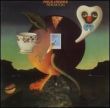RA says:
Ps. yes i realize the irony I'm an *** want can you do, can't take me anywhere.
brouhaha!!! yer killin' me
+ a "what HE said" nice post Bro
@raptorclaws
"neutral" is as "neutral does"
if ya dig into Pentatonic scales you'll notice that there are 5 (imagine that) Pents listed in most 'theory' books and such.
heres how i plop these on my students
1 - Pent Minor = clever way to get around a few scales and chords quickly (RA went inta that kinda)
why pents? why do we have these 'stripped-down' scales eh?
whats the answer ?
its our brains .. we don't follow more than 5 separate note/tone-values very well .. in other words we aint '
all that' like we'd like ta think.
our ears/brain don't process sh!t like the 7-Tone (Ionian...) scales
in full .. much less in 3-pers ..
and God help us when our noggin's hit harmonic-minor....*yeow!*
its cause we watched to much damn tv when we were kids i guess, but thats the REASON fer those 5-tone scales (Hexatonic too)
2- to yer question ...
RA covered it very well .. i'm just tossing a few more cents (not sense) yer way, Dig?
Pent begins its modal journey as a 'Minor' (odd but..) and then to the "Major" + three variations
these are really shortcuts around the 7 (or 48) main scales/modes we have. think of pents as either musical highlighter-pens or ...
tonal travel agents.
its the travel agents you should get know !
instead of the silly little 'box forms' try moving from place to place with them .. say yer riffing in G ; a simple pair of Maj-2nds (1-2-3)
over another Maj-2nd (the Five and the Six to the root G in this case. to the root) will land ya on an E in a very ear-friendly manor.
this travel agency has a Ker-Jillian stores all over the fretboard.
find them and go traveling ;~)
[B]heres a crude tab of a Pentatonic 'travel agent'
stacked up (from G) so ya kin see the movements/destinations
it may be ugly as hell but it'll get ya there
|--------------10---12-------
|----------8---10---12---
|---------7---9---------
|------5--7--9------------
|------5--7------------
|---3--5--7---------
(aint a fan of "stacking" a scale
buuuuuuut
and hey! add a d5 (or 4aug) and you get the
Hexatonic scale(s) called the "blues Scale" fer some inane reason, by some white cat at a piano in the 1940's
after Alan Lomax found the arc
RAWK!
Cs






